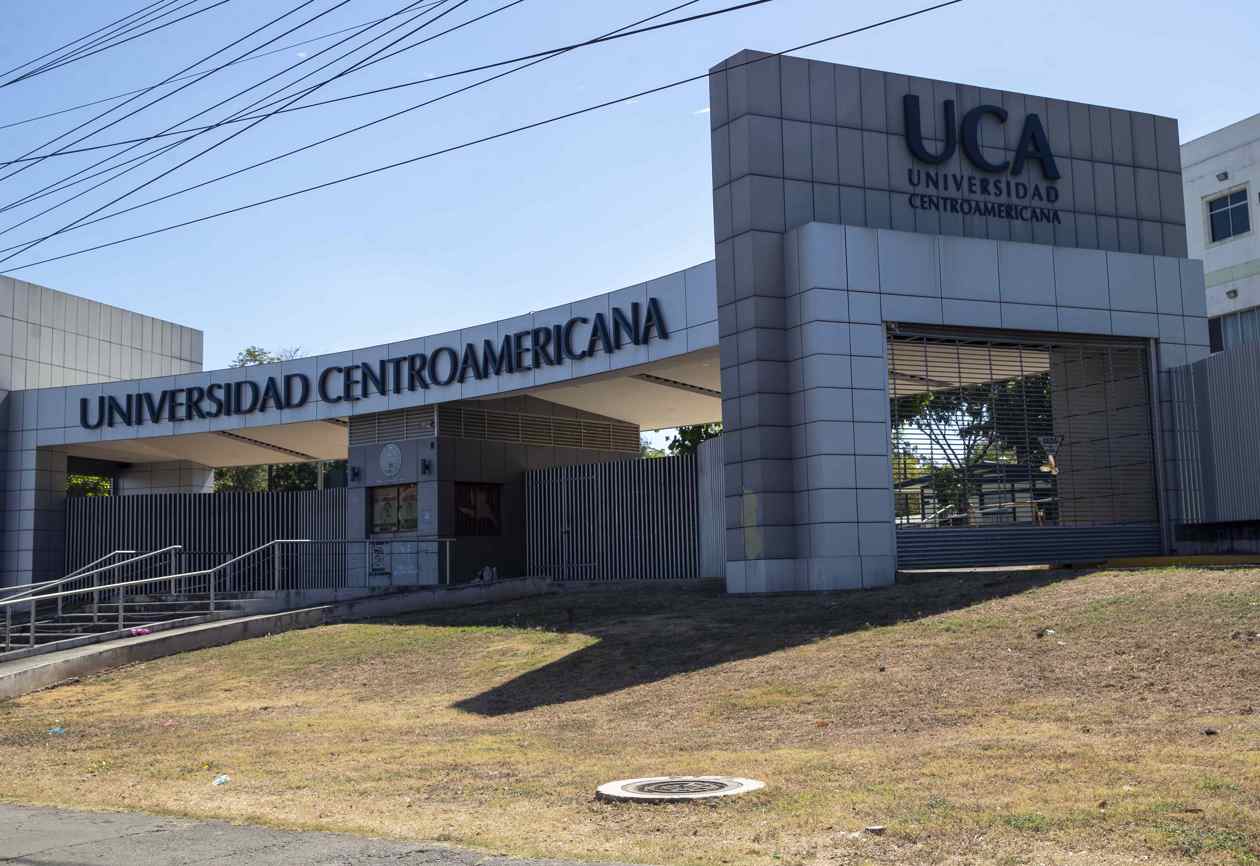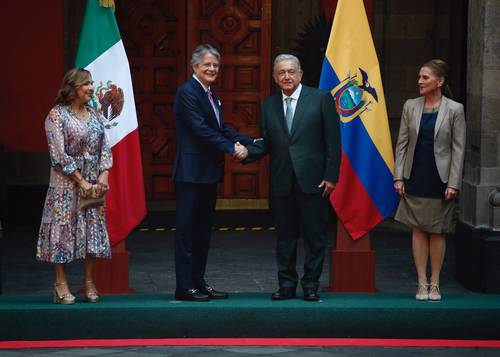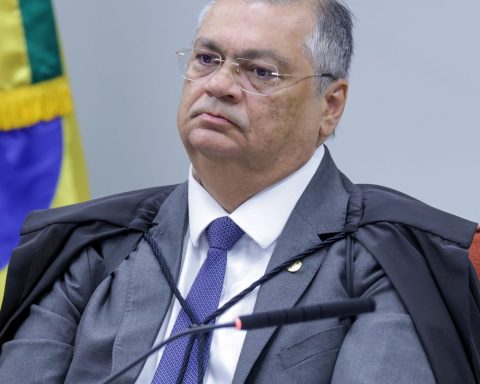The National Council of Universities (CNU) kept 75% of the budget that the Central American University (UCA) would receive in 2022. The occupation of this item, equivalent to 750,000 córdobas, occurred after a redistribution carried out by this governing body by eliminating to the UCA of the universities that make up the Council and add to those that were confiscated and then nationalized earlier this year.
Of the constitutional 6% that corresponds to the universities in Nicaragua, the UCA had been assigned in 2022 an item of one million córdobas, as revealed CONFIDENTIAL last January. This money would be used by the university to renew the few student scholarships that they maintained, despite the reductions to the budget that were systematic since 2018. However, after his expulsion from the CNU -last April- the UCA only received 250,000 córdobas, as reflected in the CNU budget execution report, as of September 2022. The rest was transferred to the Technical Secretariat of the Council.
This body, directed by the rector of the National Autonomous University of Nicaragua (UNAN-Managua), Ramona Rodríguez, has increased its budget since 2018, when it endorsed the expulsions of university students who protested against the Ortega y Murillo regime. Since 2018, the CNU has had an increase of 558%, going from 111.4 million córdobas to 733.5 million.
The excuse for this increase is that the funds will be used for a ‘Special Patriotic Fund’, a ‘Reconstruction Seed Fund’ (starting in 2019), and a ‘Digital Transformation Fund’. Nevertheless, increase these ‘special funds’, contradicts the spirit of Law 89 o Law of the CNU, which mandates the allocation of resources specifically for universities, an expert source in education pointed out to CONFIDENTIAL.
In the last three years, the Ortega regime assigned to the CNU a total of 1,507 million córdobas. Meanwhile, the UCA – which uses its funds for scholarships of different types – only received 244 million in the same period.
After the expulsion of the CNU, the university reduced student scholarships from 100% to 80%, which forces university students –who are mostly low-income– to pay part of the fees. Likewise, it launched a digital platform so that people can support scholarship students to complete their university career.
The onslaught of the Daniel Ortega and Rosario Murillo regime against the Jesuit university has intensified since 2018, with the social outbreak of civic protests. The house of studies was a refuge for thousands of Nicaraguans who fled the massacre of May 30, 2018. In addition, before the covid-19 pandemic, his campus was the only safe place where students protested against government authoritarianism. The UCA has also denounced the human rights crisis that the country is going through.
Upoli and Ucaset budget was redistributed
The budget allocated to the CNU universities is they added the houses of studies that the regime confiscated and nationalized during the first quarter of 2022: the National Polytechnic University (UNP), which was previously the Polytechnic University of Nicaragua (Upoli); and the Francisco Luis Espinoza Pineda National University (Unflep), which was the Catholic University of the Dry Tropics (Ucatse).
Likewise, the Ricardo Morales Avilés National Multidisciplinary University (UNMRMA), which brings together students from the Hispano-American University (Uhispam) —cancelled in December 2021—, the Nicaraguan University of Humanistic Studies (UNEH), the Popular University of Nicaragua (Uponic) and the Paulo Freire (UPF).
The budget allocation took the 204.3 million that Upoli would initially receive and the million destined for UCATSE to distribute the sum of 205.3 million córdobas to the other three new universities.
The UNP, which was previously Upoli, was assigned 185.9 million. UNFLEP, which replaced Ucaset, was assigned 16.4 million. Meanwhile, the Ricardo Morales Avilés University, which brings together students from the other four confiscated universities, received three million córdobas.
New universities operate as if they were private
Although these three universities are now state, they continue to function as if they were private, using the facilities and real estate equipment of the private universities that were confiscatedwhile students pay their monthly fees in dollars.
The cost of registration, cards and monthly fees are charged in dollars. The UNP established that the cost of registration is ten dollars and the monthly payment is between 25 and 30 dollars; UNMRMA charges the same for registration, and the monthly fee varies between 17 and 20 dollars, plus five dollars for the card. Meanwhile, UNFLEP charges a pre-registration fee of 350 córdobas, plus a registration fee of ten dollars and the monthly payment is between 20 and 30 dollars.
The president of the CNU said last February that these universities could not be free as appropriate because the “economic situation” of the country It does not allow it. However, it does not justify why the budget of this governing body has increased so much and the reallocation of funds from the UCA is not justified either.
In Nicaragua there is no official registry of enrollment of the universities that were confiscated and later nationalized, but an estimate made by CONFIDENTIAL —based on journalistic reports and statements by officials of those houses of study—indicates that they are more than 18,000 students affected in various departments of the country.
The data collected indicates that the Upoli housed 8500 students, followed by Ucatse with 3,200, Pablo Freire and UNEH had 1,200 students each; meanwhile, Uhispam had 3,980.
There are no records of Uponic, although some report 2,000 students, with which the total number of students of these confiscated universities could rise to 20,000.

















